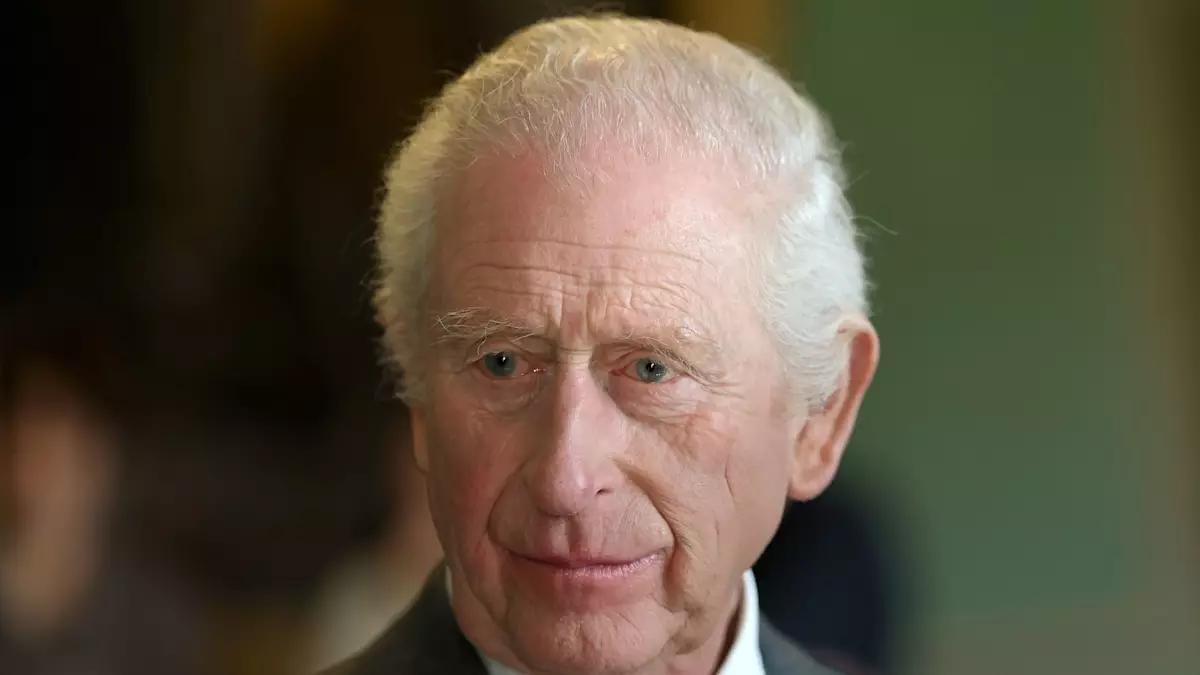In an unprecedented but appropriate gesture, King Charles has mandated that the flags at royal residences be flown at half-mast, paying tribute to the late Pope Francis, whose passing was announced by Cardinal Kevin Farrell on Easter Monday. This poignant decision not only reflects the respect a monarch accords to a global leader but also underscores the importance of communion in grief. By lowering the flags, the monarchy signals collective mourning, not just within royal circles but across the nation and beyond. The act of flag observance at half-mast has become a ritual for honoring influential public figures, reminiscent of similar tributes offered during the death of Queen Elizabeth II.
The royal family’s broader acknowledgment of this loss is reflective of their understanding of Francis’s profound impact, particularly through the embodiment of his faith in love and service. The somber music planned for the Changing of the Guard serves to deepen the tone of national sorrow, creating a moment for reflection amidst the otherwise ceremonial proceedings. It is an invitation for all, royals and citizens alike, to pause and honor the memory of a beloved pontiff whose legacy transcended religious boundaries.
Pope Francis: A Beacon of Compassion
Pope Francis was known for his compassion, humility, and unwavering dedication to the marginalized. Cardinal Farrell’s announcement captures the essence of the pope’s life’s work: a commitment to uplift the oppressed and embody the values espoused in the Gospels. His influence was felt not only in religious circles but extended into discussions of social justice, environmental stewardship, and humanitarian work. The Vatican’s statement conveyed profound sadness, emphasizing the pope’s life dedicated to service, and highlighted the significance of his teachings—especially during challenging times for many individuals and communities worldwide.
This ethos of universal love resonates strongly with the values shared by King Charles and Queen Camilla, who have publicly acknowledged the pope’s dedication to the common good. Their statement reflects a deep understanding of Francis as a leader who aimed for reconciliation and unity, not just within the Church but amongst global citizens. In a world often divided, Pope Francis acted as a catalyst for dialogue, advocating a more compassionate approach to societal issues, emphasizing that faith should be a connector rather than a divider.
A Personal Connection to a Shared Mission
The late pope’s relationship with the British royal family, particularly highlighted by their recent meeting just prior to his passing, brings a more personal dimension to this royal tribute. Their private audience, lasting 20 minutes, was laden with shared warmth and respect, as demonstrated by the gifts exchanged and the pleasantries that marked their interaction. The acknowledgment of the meeting, only confirmed just before the royal couple’s trip due to concerns over the pope’s health, illustrates the fragility of life and the importance of seizing moments that connect leaders with a historically rich commonality.
In their reflection on this meeting, the King and Queen express not just sorrow but also gratitude for the exchange; it is a reminder of how vital personal connections can be in advancing the broader mission for which Pope Francis tirelessly advocated. The heartfelt nature of their remarks underscores the weight of such losses, especially when one feels connected on both a personal and ideological level.
The Power of Legacy
The legacy left by Pope Francis will endure in the hearts of many, as evidenced by the profound tributes pouring in from across the globe. His commitment to caring for creation resonated strongly with many people, illustrating a faith that emphasizes responsibility toward the planet as part of one’s spiritual duty. As various world leaders and citizens reflect on his contributions, discussions about how to embody this legacy of compassion in everyday actions will likely flourish.
In this digital age, where the world can feel more connected yet paradoxically divided, Pope Francis’s vision invites us to look beyond immediate circumstances and strive for a more unified existence. The fact that his death coincided with the Easter festivities is symbolic, prompting reflection on renewal and hope amidst mourning. As King Charles and Queen Camilla express their profound condolences, it serves as a reminder that the ideals championed by individuals like Pope Francis continue to guide and inspire future generations toward a higher purpose: embodying Christ-like love and commitment to community.

